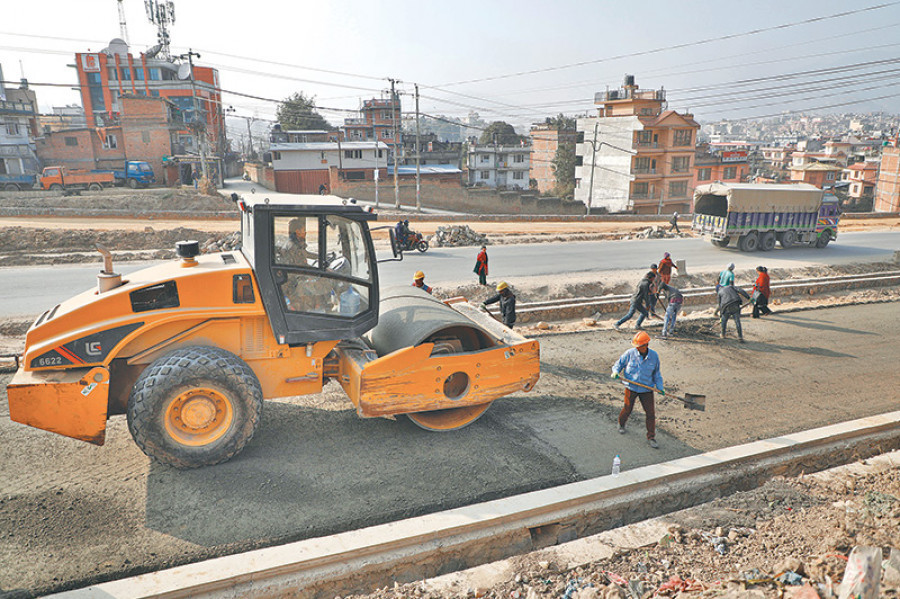Editorial
Enhancing mass transit
Road expansion is a never-ending process unless efforts are made to curb the number of vehicles.
With fuel prices skyrocketing in the past few months and showing no signs of a curve, the risk of a global crisis is imminent if not visible already. If the price hike was not enough, the United States hinted at the prospect of an embargo on Russian oil exports, causing the price of Brent crude to remain at $125 a barrel on Tuesday. Even as we reel under the effects of a global fuel price hike here in Nepal, there is something else that Nepalis in urban centres need to consider: The atrocities that our lungs are subjected to on a daily basis as gasoline-fuelled vehicles emit harmful fumes on the road. Each time we step out of our homes onto the road, our nostrils are hit by the pungent smell of diesel and petrol fumes, and our lungs struggle as they filter toxic air filled with carbon monoxide.
Not only does the unrestrained expulsion of toxic air harm public health, but it also causes an irreversible damage to the environment. The tragedy is that even in a poor country like Nepal, or perhaps exactly because of national poverty, the ownership of private commuter vehicles is a matter of class assertion. What is even more tragic is that sheer mismanagement of the public transport system has made private commuter vehicles essential elements of our lives. A mass transit system remains a pipedream in metro cities as politicians use it only as an essential element of electoral manifestos. Citizens, meanwhile, remain as hapless as ever as they have long resigned to the fatalistic idea that no good is going to happen in the country when it comes to building sustainable infrastructure.
Ultimately, what we have is an ever-growing urge for bringing more vehicles on the road rather than a well-laid plan on decongesting the road. In the past decade, all that the government has done towards management of the urban transport system is the expansion of roads, even if that came at the cost of demolishing private homes. All that was done just to ensure that the roads could accommodate more cars, motorcycles and other vehicles, without considering the fact that road expansion is a never-ending process unless efforts are made to curb the number of vehicles on the road. What we need is not bigger roads and more vehicles, but a reconsideration of the very idea of what makes sustainable infrastructure and, by extension, what constitutes a comfortable life.
For this, no ad hoc measures are going to work. What we need is a strategic intervention from the government while taking the public into confidence. The first step towards the same would be to dispel the misconceptions brought about by market-driven markers of comfortable life and social status. As of today, not only do we lack a roadmap for meeting the Sustainable Development Goals by 2030, but we also seem to lack the cognitive ability to understand what we are doing to ourselves even as we strive for a life supported by machines and technologies.




 20.12°C Kathmandu
20.12°C Kathmandu













